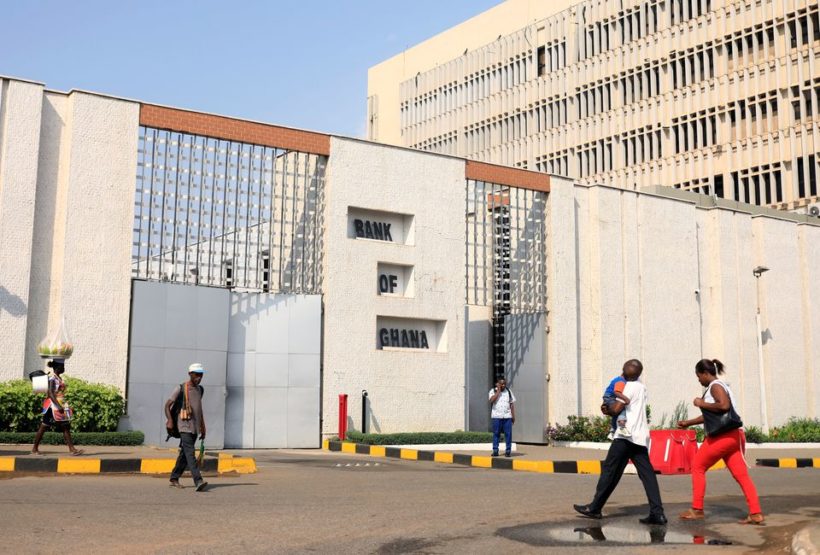
ACCRA, Nov 28 (Reuters) – Ghana’s central bank on Monday raised its main lending rate GHCBIR=ECI by a further 250 basis points to 27% to try to quell inflation in an economy facing its worst economic crisis in a generation.
The cocoa, gold, and oil-producing nation, one of West Africa’s largest economies, has experienced successive jumps in inflation whichclimbed to an annual 40.4% in October, a 21-year peak despite aggressive central bank lending rate hikes this year.
The local cedi currency GHS= has currency plummeted more than 50% against the dollar in 2022.
Bank of Ghana Governor Ernest Addison told a press briefing that the Monetary Policy Committee believed that there were signs that earlier rate hikes had dampened the pace of month-on-month inflation.
He said annual inflation could settle at around 25% by the end of next year if a tight policy stance was maintained.
Presenting the 2023 budget last week, the finance minister promised new measures to cut spending and boost revenue as the government negotiates a relief package with the International Monetary Fund.
Foreign bond haircuts are being considered as part of efforts to restructure spiralling debt.
Ghana’s total public debt stood at $48.9 billion at the end of September, $28.4 billion of which was external, according to government figures.
Dwindling foreign currency reserves prompted a policy proposal last week whereby gold will be used to buy oil products rather U.S. dollars.
Ghana’s balance-of-payments deficit widened to more than $3.4 billion in September, compared to a surplus of more than $1.6 billion at the same time last year.
(Reporting by Cooper Inveen and Christian AkorlieWriting by Sofia ChristensenEditing by Alexander Winning, James Macharia Chege)
ACCRA, Nov 28 (Reuters) – Ghana’s central bank on Monday raised its main lending rate GHCBIR=ECI by a further 250 basis points to 27% to try to quell inflation in an economy facing its worst economic crisis in a generation.
The cocoa, gold, and oil-producing nation, one of West Africa’s largest economies, has experienced successive jumps in inflation whichclimbed to an annual 40.4% in October, a 21-year peak despite aggressive central bank lending rate hikes this year.
The local cedi currency GHS= has currency plummeted more than 50% against the dollar in 2022.
Bank of Ghana Governor Ernest Addison told a press briefing that the Monetary Policy Committee believed that there were signs that earlier rate hikes had dampened the pace of month-on-month inflation.
He said annual inflation could settle at around 25% by the end of next year if a tight policy stance was maintained.
Presenting the 2023 budget last week, the finance minister promised new measures to cut spending and boost revenue as the government negotiates a relief package with the International Monetary Fund.
Foreign bond haircuts are being considered as part of efforts to restructure spiralling debt.
Ghana’s total public debt stood at $48.9 billion at the end of September, $28.4 billion of which was external, according to government figures.
Dwindling foreign currency reserves prompted a policy proposal last week whereby gold will be used to buy oil products rather U.S. dollars.
Ghana’s balance-of-payments deficit widened to more than $3.4 billion in September, compared to a surplus of more than $1.6 billion at the same time last year.
(Reporting by Cooper Inveen and Christian Akorlie; Writing by Sofia ChristensenEditing by Alexander Winning, James Macharia Chege)

